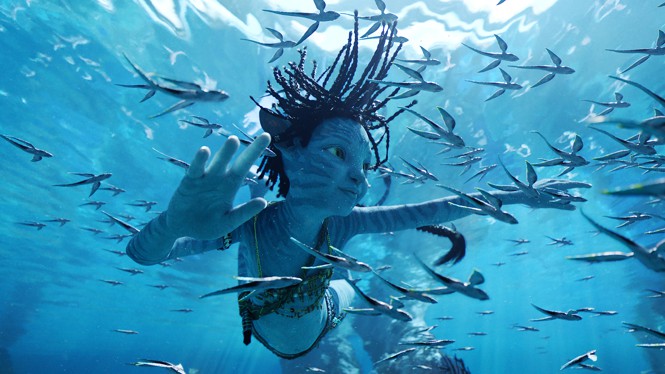The Childish Drama of Elon Musk
This is an edition of The Atlantic Daily, a newsletter that guides you through the biggest stories of the day, helps you discover new ideas, and recommends the best in culture. Sign up for it here.
For the past few days, Elon Musk has been throwing a gigantic temper tantrum on his platform, Twitter. It is not usually a matter of public interest when a narcissist like Musk goes haywire, but just as Donald Trump’s anger warped our public life, Musk’s conniptions could affect our culture and how we get information.
But first, here are three new stories from The Atlantic.
- We are not prepared for the coming surge of babies.
- No one wants your cold.
- Helen Lewis on the cringeworthy end of Netflix’s Harry & Meghan
Calvinball
A lot of serious things are happening in the world: economic uncertainty, war, a pandemic. What’s happening on Twitter isn’t even close to those issues in importance or impact. But the continued reign of Elon Musk as Twitter’s chief jerk could, in fact, affect your life, in ways you might not realize. But first, let’s review the events of the past 24 hours or so. If you haven’t been on Twitter, you’ve been missing something like the tech version of Desperate Housewives, but it’s important to understand the claims Musk is making and why major news outlets are pushing back on them.
This entire drama is probably rooted somewhere in Musk’s privileged youth or his bloated psyche, but the immediate spur to this most recent mini-drama was that Musk does not like people knowing the location of his private jet. Jack Sweeney is a college student who used public data to track the location of Musk’s jet and many others, including some owned by Russian oligarchs. He then posted this information on Twitter through a variety of different accounts—all now suspended—including one dedicated to Musk, @ElonJet. Musk disliked this so much that almost a year ago, he offered Sweeney $5,000 to stop doing it.
Sweeney declined. Musk took ownership of Twitter in late October and, in a flurry of Calvinball rule changes, declared this week that revealing the whereabouts of his jet was the same as doxxing (that is, publishing personal data about private citizens), decreed this a violation of Twitter’s terms of service, and banned the account.
Musk claims that a stalker used the location of his jet to attack a car that his son was in. He has not presented any evidence that this event happened or, it seems, filed any police reports. And in a karmic plot twist, the founder of the investigative journalism site Bellingcat tweeted that his team ascertained that the event did not take place near an airport. But Musk used this story to go after yet more accounts. None were sharing the real-time location of his jet, but some were reporting on the ban of @ElonJet and the Musk Twitter tantrum that went with it.
Within hours, the account bans had piled up. Musk took out the independent journalist Aaron Rupar, a regular thorn in his paw. He banned Donie O’Sullivan of CNN. He scragged the accounts of Drew Harwell at The Washington Post, Micah Lee of The Intercept, and Ryan Mac of The New York Times. As the night wore on, he vanished Keith Olbermann—sure, he’s annoying, but still—and Mike Binder of Mashable. And just for good measure, when Steve Herman of that notoriously left-wing organization known as Voice of America merely affirmed the news that Musk was banning his critics, the Chief Twit zotzed that account too.
The usual Twitter tempête de merde ensued. Twitter’s liberals swore that this was the last straw and that they were all decamping to alternatives, usually the Mastodon social network. This really got Musk’s oddly shaped dander up, because, as it turns out, Sweeney was over on Mastodon doing his usual flight tracking—and so Musk seemingly went through another round of sweaty, angry panic, in which Twitter declared references to Mastodon to be “unsafe,” eventually blocking links to Mastodon itself in the name of safety and virtue and all that is holy and good—which is also convenient, because Mastodon is one of Twitter’s few competitors.
Musk’s petty outbursts make you wonder how dangerous it would be if a narcissistic, self-interested, vindictive adolescent ever gained a major political office such as, say, the White House. But I digress.
Now, unless you’re Very Online—and I am, for both personal and professional reasons—none of this matters very much at the moment. But Musk’s weird rampage does have an impact on the way the world around you exchanges information. Twitter has many levels; for some people, it’s a place to talk about oddball hobbies and exchange pet pictures. (Have you met my cat?) But it’s also an extremely valuable conduit for news, information, culture, and argument. Twitter doesn’t control the news, but it helps to shape public debate about many issues. Indeed, Musk’s entire public rationale for taking over Twitter was to preserve an important venue for free speech.
Musk’s defense of free speech is nonsense. One of the world’s richest men—who is not shy about his politics or his contempt for the free press—has reinstated Donald Trump, white supremacists, and any number of dangerous malefactors to Twitter, but he has made it clear that Donie O’Sullivan is beyond the pale. He has purchased an important and influential piece of the public square not to enhance public debate, but to punish people who annoy him. As if to underscore this point, Musk joined a Twitter Spaces live audio chat with journalists who asked him to explain what he was doing. He abruptly left the meeting—and then Twitter Spaces itself was shut down. (This was, he tweeted, to fix a “Legacy bug.” He announced on Friday evening that Spaces had been restored.)
I actually don’t subscribe to some of the more nefarious theories about Musk’s motivations (nor will I share them). I think he lost his cool because for more than a month, he’s been in way over his head with an impulsive purchase, his fortunes are plunging, and he got booed by a crowd of thousands of people at a Dave Chappelle performance—which, for a guy like Musk, is probably an unforgivable injury from what should be an adoring public.
But we can at least shelve all of Musk’s blather about free speech. Twitter is an important part of how we disseminate and process news, and it’s now in the hands of an irritable and unpredictable child. This is one more step in the infantilization of American life, in which we must accommodate and work around the behavior of grown men and women who not so long ago would have been pushed out of public life either by our collective political disgust or by responsible shareholders who would insist that their corporate leaders get back to work instead of making a spectacle of themselves.
Related:
Today’s News
- In her first statement since being released from a Russian penal colony, Brittney Griner said on Instagram that she is now home and will be spending the holidays with her family.
- Russia launched more than 70 missiles at Ukraine, disrupting its power and water supplies.
- Attorney General Merrick Garland instructed federal prosecutors to end sentencing disparities over the distribution of crack and powder cocaine.
Dispatches
- The Third Rail: David French explores a key reason Trump is losing altitude right now.
- Books Briefing: Successful memoirs do much more than disclose personal details, Christina McCausland writes.
- Famous People: Kaitlyn Tiffany and Lizzie Plaugic journey into boys-trip and wine-country culture in California to relive the 2004 movie Sideways.
- Work in Progress: Derek Thompson explains why America doesn’t build what it invents.
Explore all of our newsletters here.
Evening Read

Why Doesn’t Every American Have a Robot Dog?
By Kaitlyn Tiffany
There was a time when the little robot dog was among the most coveted items in the world.
From about 1999 to 2008, all kids had to do was decide which little robot dog they longed for the most. There were so many fantastic options. From the Canadian company WowWee, Mega-Byte the Hound Droid, which had a big, blocky head and glowing eyes. From Mattel, Rocket the Wonder Dog, which “rocketed through space, time, and the Milky-Bone Galaxy looking for a loving home here on earth.”
More From The Atlantic
Culture Break

Read. Pick something up from our 10 best books of the year.
Or, if you’re in the mood to learn new things, try one of these seven books that will make you smarter.
Watch. In theaters, Avatar: The Way of Water is proof that cinematic wonder still exists.
And if you’re watching the World Cup final on Sunday, try to think of the game as a dance.
Listen. On our podcast Radio Atlantic, Mark Leibovich and Elaina Plott Calabro discuss what’s next for the GOP.
And the 10 best albums of 2022 show that the year in music was a party.
P.S.
There’s a lot of talk on Twitter about where to go if Twitter implodes. I’ve already written about why I don’t like the alternatives, but I will admit that I have set up an account on Post and reactivated my old LinkedIn account (I’m very old-school) just in case Musk literally pulls his new toy’s power cord out of the wall.
But it’s Friday, so let’s think about something more pleasant. Musk, as I noted, is playing Calvinball, a game designed by a fictional 6-year-old that has no real rules. This reminded me that it was 27 years ago this month that the comic-strip genius Bill Watterson ceased writing Calvin and Hobbes. You can see the very last panels here, with the combination of artwork and wonder that made the strip so beloved over its too-brief life. I still remember seeing the first Calvin and Hobbes in The Washington Post in 1985, when I had just moved to D.C. from Boston. I was young, broke, and more than a little homesick, but I remember laughing and being hooked immediately. So don’t let the world get you down: Daydream about being Spaceman Spiff while Miss Wormwood drones on, and then get outside and try to bean that stupid Susie Derkins with a snowball. There are multiple compilations of Calvin and Hobbes, and if you know someone who’s never experienced the strip, now is a great time to introduce them to a far better child than Elon Musk.
— Tom
Isabel Fattal contributed to this newsletter.
